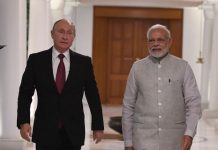 The event was being held in a portion of one of the renowned book stores in Delhi. There were three authors of comparatively successful books on the dais. Only five or six chairs were occupied in the audience. The number of attendees rose to seven by end of the panel talk. Interestingly, both speakers and listeners were in the forties or above. Only a half a dozen people bothered to come to the programme despite social media promotions and personal invites. Even the book store visitors, most of whom could be seen in its cafeteria, were not excited to hear the authors or meet them. Such incidents are not rare to notice.
The event was being held in a portion of one of the renowned book stores in Delhi. There were three authors of comparatively successful books on the dais. Only five or six chairs were occupied in the audience. The number of attendees rose to seven by end of the panel talk. Interestingly, both speakers and listeners were in the forties or above. Only a half a dozen people bothered to come to the programme despite social media promotions and personal invites. Even the book store visitors, most of whom could be seen in its cafeteria, were not excited to hear the authors or meet them. Such incidents are not rare to notice.
Gone are the days when the libraries and bookstores were almost always filled to capacity and one would feel embarrassed if someone mentions a book which a person hasn’t read. Things have drastically changed since then. Today, if someone talks about book, particularly classic ones, the person is looked upon as being odd and sometime even called crazy.
The truth of the day is that digital addiction is shrinking our memories and eroding our attention span. Fear is growing that unless we learn to unplug now, we will become the slaves of technology. According to a study by Microsoft, an average human being now has an attention span of eight seconds. This is a sharp decrease from 12 seconds in the year 2000. By the way, the attention of a goldfish is put at nine seconds.
The art of reading, the fundamental skill which is the passport to all learning, is losing its charm fast. But it needs to be revived. We need to start from the scratch. Capabilities of reflection, analogical understanding, critical inquiry and empathy are developed by in-depth readings. Digital reading, especially if introduced in early childhood, encourages skimming while discouraging reflective interaction with the text.
Bi-literacy wherein digital literacy is imparted beside serious old-style reading could be the first step in the right direction.
Reading helps our minds to grow and, as science reveals, the mind can keep growing and making new pathways of understanding even as the body ages. Charles Van Doren in his classic work How to Read a Book says that “The body is limited in ways that the mind is not. But there is no limit to the amount of growth and development that the mind can sustain. The mind does not stop growing at any particular age.”
In simple words, reading is to mind what exercise is to body. With the growing age, adults too need to be mentally fit. And books may play a crucial in it. The earlier we get involved into reading the better it will be.
Books, according to double Pulitzer Prize winner Barbara W Tuchman, are the carriers of civilisation. “Without books, history is silent, literature dumb, science crippled, thought and speculation at a standstill. They are engines of change, windows on the world, lighthouses erected in a sea of time,” she once said.
The importance of reading needs to be stressed and restored among children and adults alike. They should be told that spending time on something worth is never wasted and what’s more worth than reading a book. Weaving the digital way of education with the old style of studying may go a long way in reviving the age-old learning tradition. Reading habits shall never die.
letters@tehelka.com













